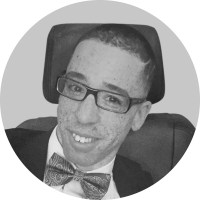Beyond the White Coat: When Doctors Bring Lived Disability Experience to Medicine

Beyond the White Coat: When Doctors Bring Lived Disability Experience to Medicine
The image of a doctor often conjures a specific picture: someone in a crisp white coat, moving with assuredness and authority. But what happens when that image expands to include individuals who bring the invaluable perspective of lived disability experience to the medical field?
A fascinating recent piece on NPR explores this topic, highlighting the unique insights and contributions of doctors who navigate their disabilities while caring for others. These physicians often possess a profound empathy and understanding that can deeply resonate with patients. They may approach challenges with innovative problem-solving skills honed through their own experiences, and they can serve as powerful role models for individuals with disabilities aspiring to careers in healthcare.
The article delves into the systemic barriers that unfortunately still exist within medical education and practice, barriers that can prevent talented individuals with disabilities from entering and thriving in the profession. It also highlights the growing movement advocating for greater inclusivity and recognizing these doctors' unique strengths.
You can read the full, insightful article here:
This NPR piece raises important questions about how we can better support and integrate doctors with disabilities into the medical community. What specific ways do you believe the medical field could become more inclusive and benefit from the perspectives of healthcare professionals with disabilities? Let's discuss in the comments below!
Comments
-
What an important discussion topic! I believe so deeply that our medical professionals need to be more people from the disability community- who better to know and support our conditions that the ones that have them?? I also get really frustrated today when non-disabled people want to work within disabled spaces because they want "to help people." I used to think this was admirable, and while it might still be to a degree- I find it is so much more beneficial when someone has the lived experience + the professional training to better address the needs of our communities.
This is a conversation that is kinda floating around the profession of Occupational Therapy in the United States- our governing board does not currently track data on OT students who identify within the disability space- and there are big complaints from disabled students with barriers in their education- such as not having adaptive devices or strategies for range of motion measurement for a person with one hand. As of right now, the tool we have is called a "goniometer" and it is a bilateral hand task. A one handed student had to on her own, find alternative solutions, the education department was less helpful for her. I find this example so Infuriating as it contradicts the adaptability that we claim to be.
As a result, I found the Stanford Medical Alliance for Disability Inclusion and Equality conference deeply refreshing. They discussed the importance and benefit of disabled healthcare providers and the need for more authentic representation on the lived experience of disability within health care education. I was beaming in my seat and felt like yelling "YES!" almost very second.
Check it out for next year! (assuming they have it, or maybe the change the name? "DEI" is under assault in the US right now)
0 -
When I first moved to Atlanta years ago, I had a disabled doctor for the first time. During this period, I began the arduous process of fighting for the wheelchair that I now have. It was great not having to explain to her what being disabled means; she immediately understood. With simple things like not having to come to the office for a repair script because she realized how hard transportation is, she didn't stay in practice for very long. It was refreshing not to have to fight for a basic understanding before having more nuanced conversations about my immediate needs.
Since August, I have been dealing with significant health problems that have made me feel more disabled than I have ever been in my whole life. As such, I've had to deal with numerous nurses and doctors across various disciplines. I would love to see more disabled doctors, if only to take the mental pressure off.
1
Categories
- All Categories
- What is Research at Open like?
- 2 What would you like to research?
- How can Open improve our community research?
- 16 Open Community (Open to All)
- 7 Welcome and Introductions
- 6 Coffee Lounge
- 1 Competitions and special offers
- 1 Open Community Help and Support
- My Community Groups
- 429 My Life's Discussions
- 42 Workplace and Employment
- 42 Education and Skills Development
- 29 Entertainment At Home
- 24 Entertainment Out and About
- 47 Travel and Transport
- 15 Built Environment - Access to Buildings and Urban Spaces
- 22 Fitness, Sports and Adventure
- 9 Cooking, Eating and Nutrition
- 13 Arts, Music and Crafts
- 22 Fashion and Beauty
- 22 Home and Daily Basics
- 6 Relationships and Sex
- 34 News and Current Affairs
- 10 Banking and Finance
- 24 Policy and Legislation
- 30 Healthcare
- 13 Shopping
- 5 Housing
- 7 Suggest a new discussion
- Education and Training Opportunities
